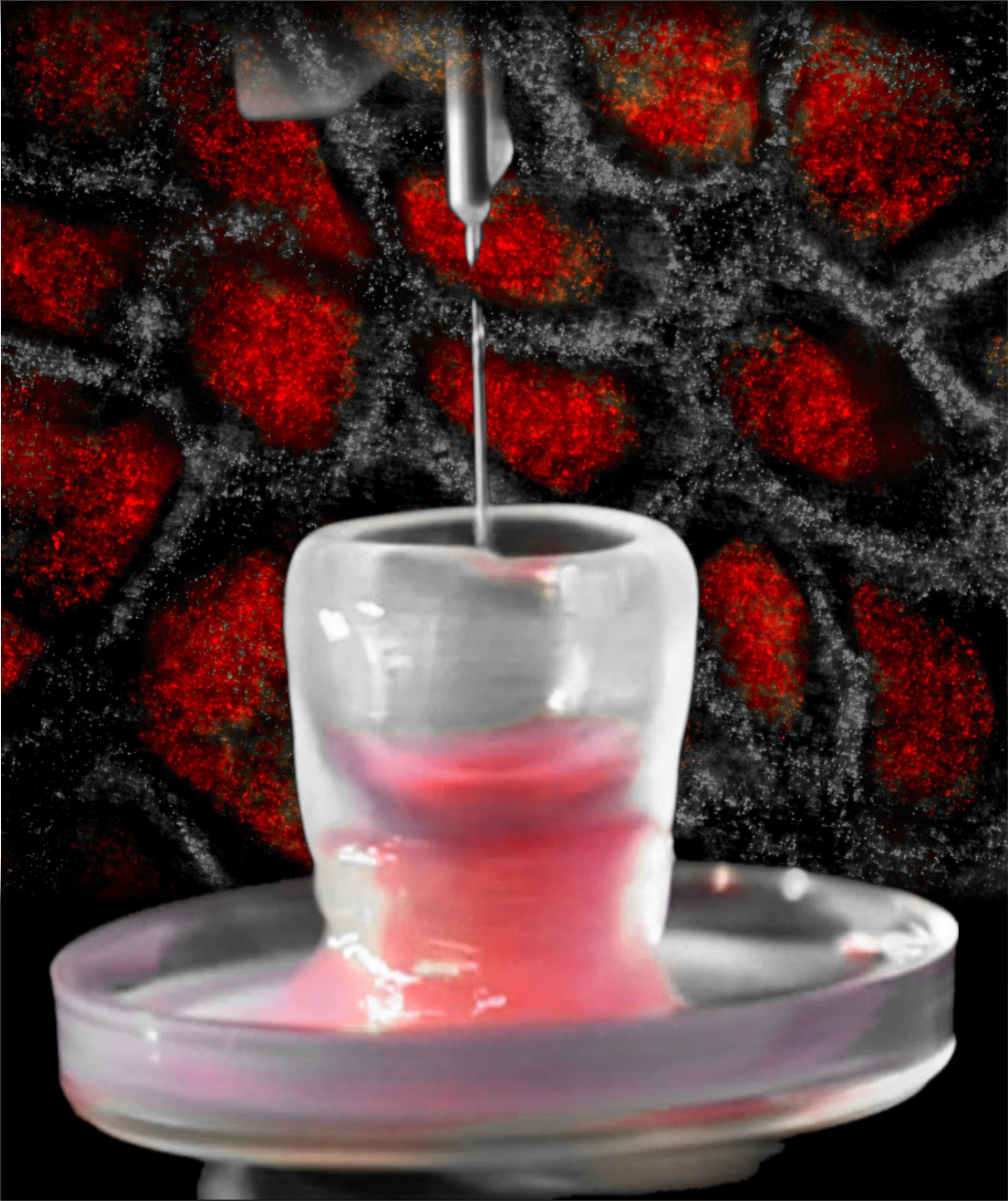Using a new technique they call “in-air microfluidics,” University of Twente scientists succeed in printing 3D structures with living cells. This special technique enable the fast and ‘on-the-fly’ production of micro building blocks that are viable and can be used for repairing damaged tissue, for example. The work is presented in Science Advances.
Microfluidics is all about manipulating tiny drops of fluid with sizes between a micrometer and a millimeter. Most often, chips with tiny fluidic channels, reactors and other components are used for this: lab-on-a-chip systems. Although these chips offer a broad range of possibilities, in producing emulsions for example—droplets carrying another substance – the speed at which droplets leave the chip is typically in the microliter per minute range. For clinical and industrial applications, this is not fast enough: filling a volume of a cubic centimeter would take about 1000 minutes or 17 hours. The technique that is presented now, does this in a couple of minutes.
